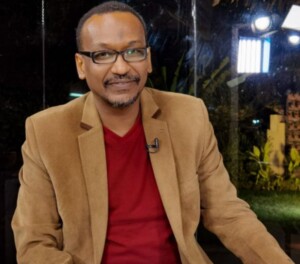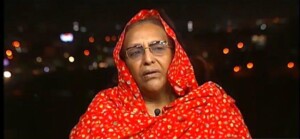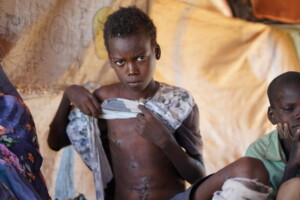US sanctions: Washington to ‘test new Sudan govt’s commitment’
The United States will first test the commitment of Sudan’s new transitional government to human rights, freedom of speech, and humanitarian access before it agrees to remove the country from the US state sponsor of terrorism list, a senior State Department official said on Monday.
 Sudan's new Prime Minister, Abdallah Hamdouk (Picture: SUNA)
Sudan's new Prime Minister, Abdallah Hamdouk (Picture: SUNA)
The United States will first test the commitment of Sudan’s new transitional government to human rights, freedom of speech, and humanitarian access before it agrees to remove the country from the US state sponsor of terrorism list, a senior State Department official said on Monday.
Reuters reports that the State Department official said that while Sudan’s new Prime Minister Abdallah Hamdouk would be the main point of contact, US diplomats would also have to interact with Gen Mohamed Hamdan 'Hemeti', the deputy chief of the Military Council who heads the widely feared Rapid Support Forces (RSF) militia.
‘This new government has shown a commitment so far. We are going to keep testing that commitment’ – US State Department official
“Prime Minister Hamdouk has said all the right things so we look forward to engaging with him… This new government has shown a commitment so far. We are going to keep testing that commitment,” the official added.
The official said Sudan’s new government had emphasised in recent talks with US officials that it wanted the country removed from the terrorism sponsor list, which limits Sudan’s access to international financing, including from lenders such as International Monetary Fund and World Bank.
$10 billion in aid
Hamdouk, who has worked for the UN Economic Commission for Africa, told Reuters on Sunday he was seeking up to $10 billion in foreign funding over the next two years to cover Sudan’s import bill and help it rebuild.
“It is an obstacle right now,” the official acknowledged referring to US sanctions, adding: “It will take a little bit of time to work through but we are committed to doing that. We want to have a positive dialogue with this new civilian government.”
Sudan was designated a state sponsor of terrorism in 1993 under former US President Bill Clinton, cutting it off from financial markets and strangling its economy.
Washington lifted a 20-year trade embargo against Sudan in 2017 and was in the process of discussions on removing it from the US list when the military stepped in on April 11 to depose veteran autocrat Omar Al Bashir, who ruled Sudan for 30 years.
Mounting public anger over shortages of food, fuel and hard currency triggered mass demonstrations that eventually forced Al Bashir from power in April.
The Trump administration suspended talks on normalizing relations with Sudan and demanded that the military hand power to a civilian government.
Economists
Economists have called on Sudan’s transitional government to make efforts to remove Sudan’s name from the list of state sponsors of terrorism, so that Sudan can take advantage of the initiative to relieve Sudan’s debt.
Sudan’s debts exceed $58 billion, according to the economists. The initiative to ease it aims to reform the health, education, and transportation sectors, dissolution of levy institutions, encouraging production in the next phase, development of an emergency plan that takes care of the daily needs of citizens and removing injustice from them.
USA perspective
During his visit to Khartoum earlier this month, US Under Secretary for Political Affairs, David Hale affirmed that while “America is fully committed to helping Sudan transition to a civilian-led government that reflects the will of the people,” he cautioned that his country still needs to settle some issues with Sudan before considering removing it from the list of state sponsors of terrorism: “There are a number of things that we look forward to engaging with a civilian-led government in Sudan,” he said, adding that these included human rights, religious freedom, and counter-terrorism efforts, as well as “promoting internal peace, political stability and economic recovery in Sudan”.
Sources: RD / Reuters (Reporting by Lesley Wroughton; Editing by Tom Brown)
Our editorial independence means that we can continue to provide factual updates about political developments to Sudanese and international actors, educate people about how to avoid outbreaks of infectious diseases, and provide a window to the world for those in all corners of Sudan. Support Radio Dabanga for as little as €2.50, the equivalent of a cup of coffee.












 and then
and then